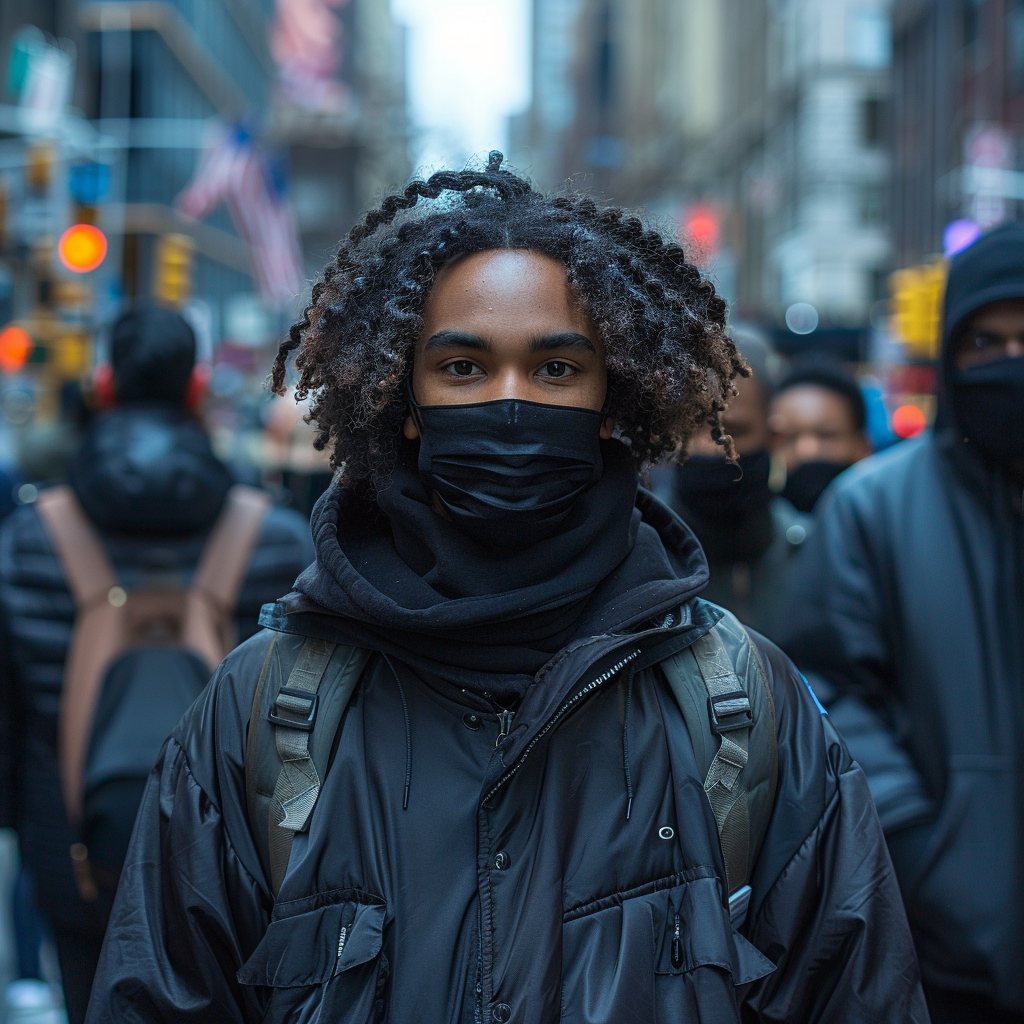Understanding racism conspiracy theories is crucial in a world where misinformation can spread faster than the truth. These theories often manipulate real-world issues of racial tension and prejudice to propose insidious explanations that distract from genuine dialogue and understanding. The term “racism” refers to discrimination or antagonism directed against individuals based on their race or ethnicity.
A “conspiracy theory,” meanwhile, suggests secretive, malevolent plots by powerful entities. When these elements combine, they form racism conspiracy theories-narratives alleging that certain races are behind widespread societal or global nefarious plans.
The persistence of such theories can be attributed to a variety of psychological, social, and historical factors. Despite advancements in education and technology that should theoretically dispel unfounded beliefs, racism conspiracy theories continue to thrive. They tap into deep-seated fears and prejudices, offering simple yet fallacious explanations for complex social issues. This not only hinders progress towards racial equality but also feeds into cycles of mistrust and division within societies.
Racism conspiracy theories significantly impact various communities and public discourse, creating an environment where false narratives can easily overshadow factual reporting and rational debates. They exacerbate existing societal tensions by promoting us-versus-them mentalities, which can lead to increased discrimination, social unrest, and even violence. By embarking on an exploration of these theories’ origins, proponents, effects, and the media’s role in their dissemination or debunking, this article aims to provide a comprehensive understanding that challenges these harmful conspiracies.

Historical Context and Evolution of Racism Conspiracy Theories
The origins of racism conspiracy theories stretch back centuries, evolving alongside societal changes and technological advancements. Initially rooted in colonial and imperial narratives, these conspiracies served to justify the subjugation and exploitation of various ethnic groups by depicting them as inherently inferior or threatening.
For instance, during the era of European colonization, pseudo-scientific theories about racial hierarchies propagated beliefs that non-European peoples were less intellectually capable or morally developed. These baseless claims laid the groundwork for justifying slavery, colonization, and the wide scale exploitation of resources in Africa, Asia, and the Americas.
As history progressed into the 19th and 20th centuries, new forms of racism conspiracy theories adapted to contemporary contexts, intersecting with political ideologies and emerging media technologies. In the United States, for example, the post-Civil War period saw a surge in conspiratorial narratives among embittered Southern whites who painted newly freed African Americans as part of a Northern plot to overthrow traditional social structures.
The portrayal of African Americans as a monolithic threat seeking dominance over whites became a prevalent theme in racist propaganda throughout the Jim Crow era. The advent of film and later television provided new avenues for such theories to be propagated with harmful stereotypes, influencing public perception at an unprecedented scale.
The digital age significantly transformed how racism conspiracy theories are spread and evolved further. With the rise of internet usage and social media platforms in recent decades this enabled fringe ideas to gain mainstream traction more rapidly than ever before.
Online forums and social networks have not only facilitated easier dissemination but also created echo chambers where racist ideologies can be reinforced without challenge. This modern proliferation has breathed new life into old prejudices-now cloaked in seemingly innovative or rebellious rhetoric-making them more palatable to younger audiences or those alienated by current economic or political situations.
Common Racism Conspiracy Theories and Their Proponents
Throughout modern society, numerous racism conspiracy theories have taken root, each varying in scope and influence. One of the most pervasive theories is that of racial replacement or “white genocide,” which erroneously claims that there is a deliberate plot, often orchestrated by non-white people or external agents, to replace white populations through immigration and higher birth rates among minorities.
This theory has been aggressively propagated by various extremist groups who view multiculturalism as a threat to their racial identity. Such beliefs stoke fear and hostility among certain segments of the population, leading to a deeply polarized community where mistrust and paranoia are rampant.
Another common racism conspiracy theory revolves around the idea that systemic racism is either exaggerated or entirely fabricated as a political tool. Promoters of this theory argue that discussions on systemic biases and injustices are merely tactics used by certain ethnic groups to gain social or political leverage.
High-profile commentators in media and politics sometimes give voice to these sentiments, providing them with a veneer of legitimacy that can sway public opinion. This misrepresentation muddies genuine dialogues about race relations and civil rights, hindering societal progress towards equality and understanding.
The interconnectedness of racism with other types of conspiracy theories also plays a significant role in its propagation. For instance, health-related conspiracy theories often intersect with racial narratives to suggest that certain races are being targeted for harm via vaccines or medical treatments. These racially charged health conspiracies have seen an uptick especially during global crises such as the COVID-19 pandemic.
The spreaders of these conspiracies include not just fringe individuals but sometimes influential leaders seeking to cast doubt on scientific consensus or governmental policies for personal or group gains, thus exploiting public fears for nefarious purposes. By appealing to the identity politics inherent in group belonging, these propagators effectively amplify the reach and impact of their deceptive narratives.
Psychological and Social Factors Driving Belief in Racism Conspiracies
Cognitive Biases and Belief Systems
The human brain is wired to seek patterns, an instinct that often leads one down the rabbit hole of believing in racism conspiracies. Cognitive biases, particularly confirmation bias and belief perseverance, play pivotal roles in this process. Confirmation bias drives individuals to favor information that confirms their pre-existing beliefs or hypotheses, disregarding contradictory evidence.
In the context of racism conspiracy theories, this means that once someone believes in a certain narrative about racial dynamics, they are more likely to accept information that supports this narrative while ignoring facts that refute it. Belief perseverance further compounds this issue by causing individuals to stick to their initial beliefs even when presented with new evidence to the contrary.
The symbiosis between these biases can create a psychological environment where erroneous beliefs about race and influence not only persist but flourish.

Societal Influences on Racial Beliefs
Societal issues such as inequality and historical grievances also significantly foster the acceptance of racism conspiracy theories. When communities experience systemic injustice or historical trauma, it can generate a fertile ground for conspiracy theories to take root. These theories often provide a simple explanation for complex social issues, offering a scapegoat for societal problems and personal grievances.
For instance, economic disparities and social injustices can be misleadingly explained through conspiracies that invoke discriminatory practices by shadowy groups supposedly favoring one racial group over another. This misattribution can appeal emotionally when people feel disenfranchised or powerless, directing their anger towards fabricated enemies instead of addressing the real underlying socio-economic conditions.
Group Identity and Social Connectivity
The role of group identity in propagating racism conspiracy theories cannot be underestimated. Humans have an inherent need to belong to groups, and this social aspect influences many behaviors, including belief systems. Membership in certain groups often comes with particular ideological baggage which may include specific conspiracy theories related to race.
These ideas are usually reinforced within the group dynamic promoting a shared reality among its members; dissenting from group consensus can result in ostracism or social isolation. Consequently, individuals might accept racist conspiracies as truth simply because they desire acceptance within their social circles or communities, illustrating how deeply intertwined human connectivity is with the perpetuation of these damaging falsehoods.
Impact of Racism Conspiracy Theories on Communities
Racism conspiracy theories have a profound impact on community dynamics, often serving to exacerbate racial tensions. These theories can validate pre-existing racial prejudices or ignite new ones, creating or deepening divides among community members. They frequently present particular racial groups as either under threat from others, or conversely, as perpetrators of elaborate schemes aiming to undermine societal structures.
This polarized framing generates fear and suspicion that can lead to social isolation of minority groups. Moreover, while these beliefs primarily affect racial relationships within communities, they also impact how individuals interact with systems like law enforcement and education, potentially reducing trust and cooperation necessary for societal harmony.
Consequences for Minority Communities
For communities frequently targeted by racism conspiracies-often ethnic minorities-the effects can be especially damaging. These conspiracy theories not only stigmatize individuals based on their race but can also lead to real-world discrimination and exclusion.
For example, certain conspiracy theories claim outsized influence or malevolent intent on the part of specific racial groups in areas such as politics or finance, fueling discrimination in employment practices, housing opportunities, and other essential aspects of daily life. Furthermore, these conspiratorial narratives contribute to internalized racism among minority group members themselves when they begin believing detrimental stereotypes about their own abilities and rights.
Societal Division and Policy Implications
The spread of racism conspiracy theories inevitably leads to deeper societal splits which are difficult to heal. As these splits intensify public discourse polarization, finding consensus on key issues becomes nearly impossible-whether it’s regarding laws designed to enhance equality or responses to racially charged incidents within communities.
Additionally, in some cases where these conspiracy theories find traction among significant portions of the populace or policymakers themselves, unfortunate consequences may follow such as unjust policies targeting particular racial groups under the guise of rectifying perceived injustices highlighted by the conspiracy theory narrative. Hence, understanding and addressing these theories is crucial not just for maintaining social peace but also for nurturing fair governance practices that benefit all community members equitably.

Media’s Role in Spreading or Debunking Racism Conspiracy Theories
Media platforms hold a dual responsibility when it comes to the dissemination and correction of racism conspiracy theories. Whether through social networks, traditional news outlets, or emerging digital media spaces, the role that these entities play in shaping public discourse cannot be understated.
On one hand, they have the capacity to amplify unfounded claims that can fuel these harmful beliefs; on the other, they are powerful tools for debunking misinformation and promoting factual content. This delicate balance is critical in managing how such sensitive topics are presented and understood by the public.
The challenges faced by media in dealing with racism conspiracies vary widely across different platforms:
- Traditional Media: Newspapers and television news shows must carefully vet their sources and provide balanced reporting to avoid unintentionally propagating racism conspiracy theories. However, due to sensationalism or biased reporting, sometimes these media outlets either contribute to spreading baseless ideas or fail adequately to challenge them.
- Social Media Platforms: These are double-edged swords as they allow for rapid dissemination of information but also unchecked spread of misleading content. Social media channels often lack the rigorous vetting processes that traditional media might employ, making them fertile ground for the proliferation of conspiracy theories.
- Digital News Platforms: These newer entities have an opportunity to set higher standards for journalistic integrity by leveraging technology to fact-check and debunk inaccurate statements faster than ever before.
Instances where media coverage has helped challenge racism conspiracies provide hope and direction for future endeavors. For example, after a widespread racism conspiracy claimed undue influence over government policies was being wielded by certain racial groups – major reputable news sources stepped in with extensive investigative journalism pieces that dismantled such falsities piece by piece using historical data and expert interviews.
Similarly, during episodes of public unrest that were falsely attributed to racial motives without evidence, several responsible media organizations prioritized broadcasting viewpoints from local leaders and community representatives which clarified misunderstandings and educated viewers.
However, despite some efforts towards responsible reporting, many platforms still struggle with how best to approach subjects infused with racial tensions without exacerbating issues. As stewards of information, all forms of media need an ongoing commitment to uphold principles of accuracy and fairness – especially when handling topics as volatile and consequential as racism conspiracy theories.
Strategies for Addressing and Debunking Racism Conspiracy Theories
Racism conspiracy theories, as misleading narratives that breed mistrust and societal division, need to be tackled methodically and relentlessly. Addressing these dangerous ideas involves a combination of education, critical thinking, and broad community engagement.
Taking the first step means acknowledging the persuasive power of these conspiracies and understanding the psychological echo chamber that allows them to flourish. By emphasizing educational reform that promotes a comprehensive view of history, societies can undermine the false premises on which many racism conspiracies are built.
For those confronted by racism conspiracy theories within their communities or personal circles, practical strategies can also include:
- Engagement in open dialogues: Encouraging conversations around sensitive topics while maintaining respect and patience can help diffuse tensions and clarify misunderstandings.
- Enhanced media literacy: Strengthening ability to critically evaluate sources helps individuals identify biases or unfounded claims in the information they consume daily.
- Support for fact-checking initiatives: Promoting entities and resources that conduct factual verification can discourage the spread of misinformation.
Furthermore, community leaders, educators, and policymakers play a pivotal role in addressing racism conspiracy theories effectively. They can set community norms that value diversity and promote inclusivity which inherently discredits racial prejudices underlying such conspiracies.
Educational curricums need to integrate critical thinking skills from an early stage; teaching students not only how to think but also how to question information critically is fundamental in preventing prejudice perpetuation. Lastly, clear policies must be enforced against spreading misinformation about racial issues precisely for its potential harm leading to societal divides or violence based on wrongful beliefs.
Implementing these strategies requires concerted effort from all social sectors – it’s not merely enough for individuals to adopt a critical approach; institutions themselves must lead by example through transparency, accountability, and ongoing dialogue about race relations today.
Conclusion
In wrapping up the exploration of racism conspiracy theories, it is essential to recognize the profound impact these beliefs have on society. The discussion delineated not only their origins and evolution but also illuminated how psychological and societal factors contribute to perpetuating such divisive ideologies. Throughout the analysis, a recurring theme was evident: when unchallenged, racism conspiracy theories exacerbate social divisions and negatively affect minority communities, leading to increased racial tensions and even violent incidents.
The importance of education, open dialogue, and accurate information cannot be overstressed in addressing such deeply ingrained issues. These components serve as the bedrock for debunking falsehoods surrounding racism conspiracies. Media outlets, educators, policymakers, and community leaders play pivotal roles in framing discussions that are based on facts rather than fueled by misinformation. It is crucial for these stakeholders to actively engage in providing balanced narratives that highlight diversity and foster understanding across different groups.
To move forward as a more inclusive society, an ongoing commitment is required from each individual to critically evaluate information before accepting it as true. This process involves questioning sources, seeking out diverse perspectives, and engaging in thoughtful discussions rather than retreating into echo chambers that reinforce preexisting biases.
Ultimately, combating racism conspiracy theories is not just about correcting false claims but nurturing a culture where truth prevails and diversity is celebrated as strength. As readers and members of diverse communities, we bear the responsibility of supporting initiatives that promote inclusivity while rigorously advocating for empirical truthfulness in public discourse.
This text provides a deep dive into the complex and harmful nature of racism conspiracy theories. It’s alarming how these narratives exploit real issues to create division and mistrust. The historical roots of such theories show how deeply ingrained they are in societal structures. It’s frustrating to see how, despite advancements in education and technology, these theories continue to thrive. The media’s role in either spreading or debunking these narratives is crucial, yet often overlooked. How can we, as individuals, actively challenge and dismantle these harmful beliefs in our communities? It’s time to move beyond fear and prejudice and work towards genuine understanding and equality.
Understanding racism conspiracy theories is indeed a complex and pressing issue in today’s world. It’s alarming how these theories exploit real racial tensions to create divisive narratives. The combination of racism and conspiracy theories seems to prey on people’s fears and prejudices, offering simplistic yet dangerous explanations for intricate social problems. It’s concerning that despite advancements in education and technology, these theories continue to thrive and spread. The impact on communities and public discourse is profound, fostering mistrust and division. Exploring the origins and effects of these theories is crucial to challenging and dismantling them. How can we effectively counteract the spread of such harmful narratives in the age of rapid information dissemination?
Racism conspiracy theories are indeed a complex and troubling phenomenon that continues to affect societies globally. It’s alarming how these narratives exploit real issues of racial tension to spread misinformation and division. The article does a good job of highlighting the psychological and historical factors that contribute to their persistence. However, I wonder if it fully addresses the role of modern media platforms in amplifying these theories. Do you think social media companies are doing enough to combat the spread of such harmful content? It’s frustrating to see how these theories thrive despite advancements in education and technology. The us-versus-them mentality they promote is particularly dangerous, as it deepens societal divides. What steps can individuals take to critically evaluate and challenge these narratives in their own communities?